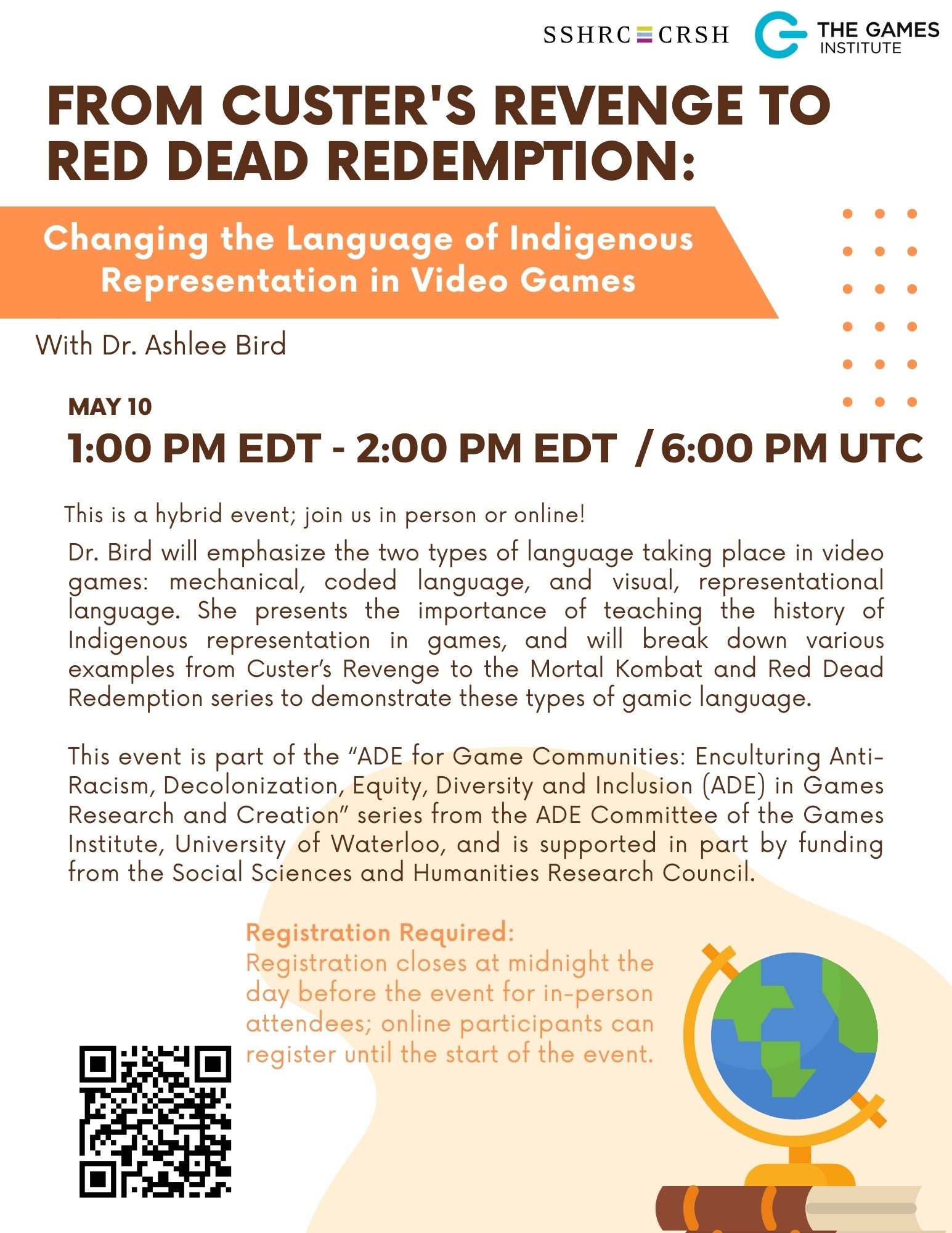Dr.
Bird
will
emphasize
the
two
types
of
language
taking
place
in
video
games:
mechanical,
coded
language,
and
visual,
representational
language.
She
presents
the
importance
of
teaching
the
history
of
Indigenous
representation
in
games
and
will
break
down
various
examples
from
Custer’s
Revenge
to
the
Mortal
Kombat
and
Red
Dead
Redemption
series
to
demonstrate
these
types
of
gamic
language.
Building
upon
these
examples,
she
centers
on
the
problematic
ways
players
have
historically
translated
the
messages
they
are
being
presented
within
the
digital
medium
of
the
video
game.
She
illustrates
how
these
translations
result
in
harmful
narratives
about
Indigenous
avatars
becoming
cemented
within
the
overarching
discourse
and
design
of
games.
Finally,
she
will
look
at
new
Indigenous
works
and
how
inclusive
and
decolonial
game
design
and
practices
like
ROM
hacking
can
push
back
against
these
established
narratives
and
the
ways
in
which
players
read
them,
and
instead
create
sovereign
digital
spaces
for
Indigenous
peoples.
About
the
Speaker:
Dr
Bird
is
a
Native
American
game
designer
and
PhD
in
Native
American
Studies.
She
is
Western
Abenaki
and
originally
hails
from
the
Champlain
Valley
of
Vermont.
Her
work
theorizes
digital
sovereignty,
drawing
on
Native
American
studies,
media
studies,
and
game
studies
to
address
representations
of
Native
American
characters
in
video
games.
The
work
analyzes
specific
colonial
methodologies
being
replicated
within
game
spaces
in
order
to
then
replace
these
with
decolonial
methods
of
game
design
being
undertaken
by
herself
and
fellow
Native
game
designers
with
a
focus
on
what
she
terms
“synthetic
Indigenous
identity,”
oriented
around
promoting
Indigenous
futures.
Her
work
has
been
featured
in
the
InDigital
Space
at
the
ImagineNATIVE
Film
&
Media
Festival
in
2018
and
2019
respectively.
She
is
also
a
founding
member
of
the
UC
Davis
ModLab,
an
experimental
laboratory
for
media
research
and
digital
humanities.
